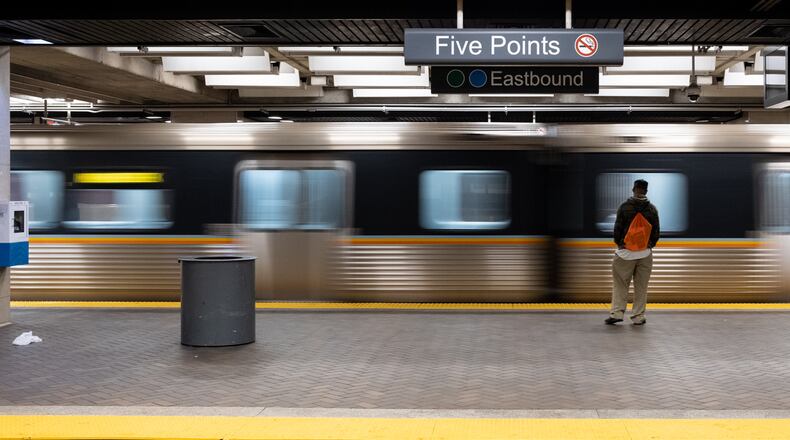With much of the economy shut down and far fewer riders amid the coronavirus pandemic, MARTA faces a major budget crunch that could lead to service cuts, layoffs and delayed expansion plans in the months ahead.
Fewer riders means less in fare revenue for the region's largest transit agency. And with hundreds of thousands of Georgians filing for unemployment instead of working and shopping, MARTA's sales tax receipts also are plummeting.
MARTA officials say it’s too soon to say what the results will be. And a federal bailout of the transit industry — with nearly $300 million coming to MARTA — will buy the agency some time.
But the message at Thursday’s MARTA board meeting was clear.
“The (financial) picture has gone from very nice to somewhat gloomy,” interim Chief Financial Officer Kevin Hurley told the board.
MORE: A map of coronavirus cases in Georgia
MORE: Real-time stats and the latest news on the coronavirus outbreak
While fare and sales tax revenue are falling, expenses for cleaning supplies, sick time and other costs are rising. MARTA expects a gap of nearly $50 million between revenue and expenses — and that's just for its operating budget of about $514 million.
“We have a similar ugly story on the capital side,” Hurley told the board.
The federal money will help. MARTA expects to receive about $298 million in aid. But if a recession drags on for months, it might not be enough.
“It will help fill the gap and help buy some time,” Hurley said. “Obviously, though, that $300 million is not enough to fill the gap completely.”
Though the agency hasn’t said what it will do, it’s already reviewing its options. On the operating side, that could mean further service cuts and staffing cuts.
“One of the things we inevitably are going to have to consider, will we continue to be the same size organization that we are today in terms of providing service?” CEO Jeffrey Parker told the board.
Declining revenue also may affect capital improvements — everything from maintaining the existing system to planned expansions in Atlanta and Clayton County. Hurley said MARTA could borrow more money for that work, do less of it or delay projects.
“Clearly, there’s a lot of challenges in front of us,” Parker told the board. “We’re doing our best to understand the magnitude of these shortfalls so that we can react to them.”
About the Author
Keep Reading
The Latest
Featured




